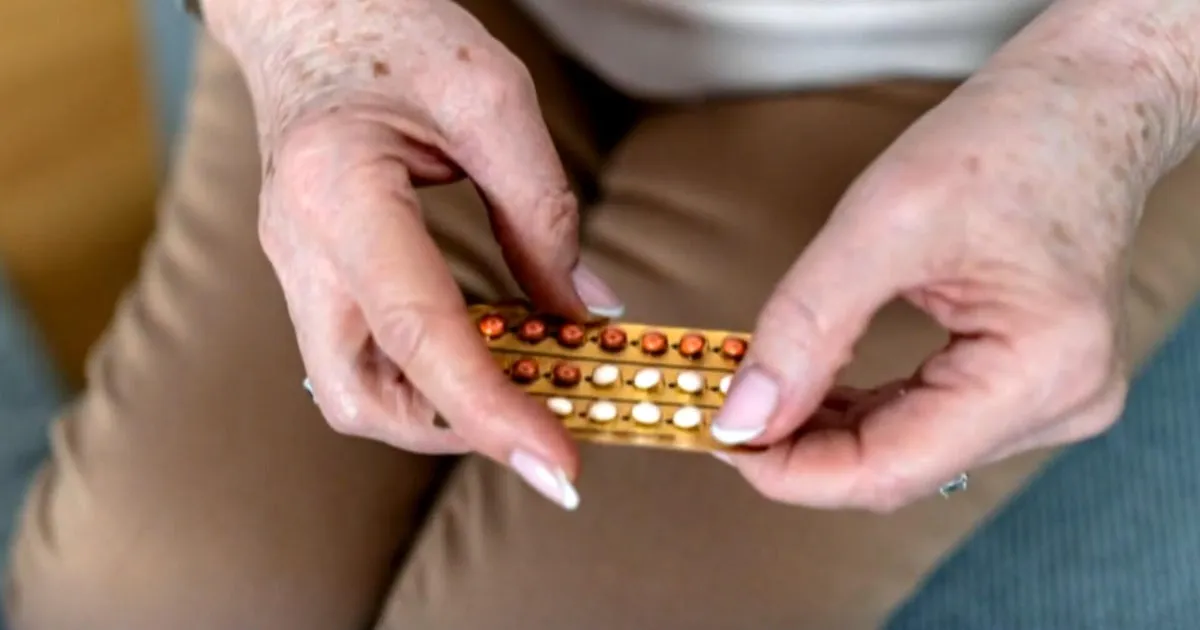
At 53 years old, Isabel Kallman is navigating the challenging journey of perimenopause, marked by symptoms such as hot flashes and sleepless nights. As her hormones naturally decline, she finds herself grappling with the options available for relief, particularly menopause hormone therapy. This treatment often involves the use of estrogen to alleviate the discomfort associated with the lead-up to menopause. However, Kallman is hesitant due to the black box warnings on hormone therapy medications, which alert users to potential risks like stroke, blood clots, dementia, and breast cancer.
In her quest for relief, Kallman has turned to a trusty companion—a handheld fan named Fanny—keeping it close at hand to manage her symptoms. As she contemplates the possibility of hormone replacement therapy, recent discussions around the safety of these treatments have gained momentum, especially as the Food and Drug Administration (FDA) considers lifting some health warnings associated with them.
Dr. Mary Rosser, Kallman's physician for the past five years, argues that outdated research has skewed the perception of hormone therapy risks, particularly regarding breast cancer. The pivotal 2002 Women's Health Initiative study, which raised significant safety concerns, primarily involved older women who had delayed starting hormone replacement therapy until well after menopause. This design flaw has led to a misunderstanding of the treatment's safety profile, according to Dr. Céline Gounder, a medical contributor to CBS News and editor-at-large for KFF Health News.
Today, healthcare professionals emphasize that factors such as a woman’s age and the method of hormone delivery are critical in assessing the safety of menopause hormone therapy. Dr. Gounder notes that recent studies indicate the timing of treatment is vital; starting hormone therapy closer to a woman’s final menstrual period can significantly reduce associated risks. “It’s an example of how science evolves,” Gounder remarked, highlighting the importance of ongoing research in this field.
According to Dr. Rosser, hormone therapy is often the most effective treatment for managing various symptoms of perimenopause. She advises patients to engage in thorough discussions with their doctors to tailor a treatment plan that best suits their individual needs. Ideally, treatment should commence as close to the patient’s final menstrual period as possible and continue until around the age of 60.
Dr. Rosser has been collaborating with Kallman over the past nine months to weigh the benefits and risks, particularly given Kallman’s family history of breast cancer. While Kallman remains cautious, she is beginning to recognize that hormone therapy might be her most viable option for relief. “I’m hoping that there is an opportunity for me to do it,” Kallman expressed, wishing for a solution to her symptoms.
Among the available treatments, low-dose vaginal estrogen therapy is one option. Other methods include comprehensive treatments such as pills, patches, sprays, gels, or vaginal rings that deliver hormone doses effectively into the bloodstream, significantly alleviating symptoms like hot flashes. As experts like Dr. Rosser continue to discuss the pros and cons of these therapies, an FDA-assembled panel has highlighted the potential benefits of removing certain health warnings from hormone therapy labels.
Nevertheless, a coalition of healthcare experts has urged caution regarding any changes to labeling, stressing the importance of thorough scientific evaluation. A letter signed by 76 doctors and researchers warned that altering label warnings without proper assessment could jeopardize patient safety, as reported by The Associated Press. They have requested that the FDA convene an advisory committee meeting with a public hearing before making any definitive changes.
Dr. Rosser views the FDA’s consideration of these issues as a positive development, emphasizing the significance of addressing women's health priorities. “This is a public health priority, and this is a sign that the FDA sees that,” she concluded in her conversation with CBS News.